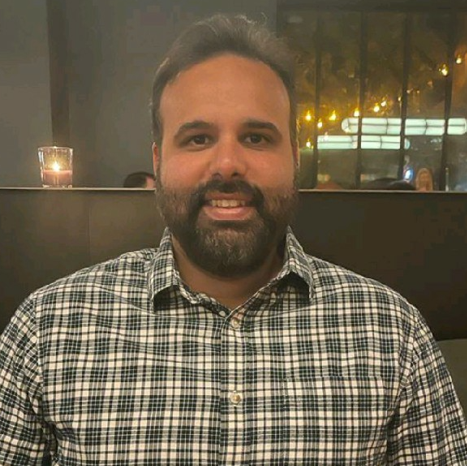In today’s tech-driven world, ensuring a seamless digital experience is more important than ever. While innovative features capture headlines, it’s quality assurance that determines whether users stay engaged or abandon a product. In this evolving space, leaders like Sumit Abhichandani are transforming how we think about quality, accessibility, and artificial intelligence.
Sumit Abhichandani is a global quality assurance leader at Visa, overseeing a team of more than 80 engineers and managers. With a master’s degree in electrical engineering from the University of Houston, Sumit’s career has spanned roles at Foxconn, Polycom, and now Visa, where he integrates AI to elevate software testing and accessibility. His passion for inclusivity and innovation is helping shape the future of financial technology.
Thank you so much for joining us in this interview series. Before we dive in, can you share with us the backstory about what brought you to your specific career path?
After completing my master’s in electrical engineering, I started my career in software testing at Foxconn, working on both hardware and software for Cisco. That experience showed me how crucial quality is for user adoption. Over time, I moved into leadership roles at Polycom and now Visa, where I lead a global team focused on software testing and integrating AI to improve efficiency and user experience.
Have you always been good with computers?
Not initially. I wasn’t strong in programming until a university hackathon project sparked my interest. Seeing people use the software we built got me hooked.
How do you build the skill to test software from a user perspective?
It’s a mix of team expertise, strong automation frameworks, and now AI. We recently used AI to build a defect prediction model that reduced test preparation time by over 60%, enabling us to meet tight deadlines without compromising quality.
When people use Visa apps, where does your team fit in?
We’re one of many teams contributing to Visa’s products. My team helps ensure quality across various platforms, especially in e-commerce and accessibility.
Can you give an example of how AI is used in your work?
Sure. In e-commerce, AI now recommends products based on user behavior. We’re exploring agency AI that can make purchases on behalf of users. Internally, we use AI in test automation, accessibility monitoring, and even in tools like Copilot for writing clear emails.
What’s your biggest challenge as a team leader?
Capacity planning and change management. Projects evolve quickly, so we have to pivot while keeping stakeholders informed. We also faced initial resistance to AI, which we overcame by using it for repetitive tasks and proving its value.
Were you using AI before ChatGPT was released?
Yes. Visa has long used AI for fraud detection and risk analysis. ChatGPT gave us a broader platform to scale those capabilities and incorporate more advanced models.
How does your team stay trained on new tools and innovations?
Visa offers internal sessions, invites speakers from companies like OpenAI and Anthropic, and encourages attending external conferences. We also have our own AI university and participate in industry forums.
Do you explore AI projects personally too?
Yes. Hackathons are a great way to try new ideas. Some of our internal tools began as hackathon projects and are now in production.
How do you ensure Visa products are secure?
Security is a top priority. We run extensive security testing before production, using custom tools to find and fix vulnerabilities early.
Is blockchain part of Visa’s roadmap?
Yes, Visa is researching blockchain’s efficiency and governance. While my team isn’t directly involved, we attend sessions and track developments closely.
Do you think blockchain will be widely adopted by credit card companies?
It’s already starting with some merchants. Broader adoption depends on addressing governance and risk, but we’re headed in that direction.
What technology gap would you close if you had full control?
I’d build a global, open-source AI tool for accessibility audits. Too often, accessibility is overlooked. Technology should serve everyone.
If you could start your own company, what would it do?
I’d create a single platform for comprehensive software quality testing — performance, security, accessibility — powered by AI. There’s no unified tool for this today.
What advice do you have for new grads entering tech?
Start with internships and hackathons to explore your interests. Join forums, attend tech talks, and never stop learning. Industry and academia need to stay aligned.
What needs to happen in the next year for you to feel proud of your progress?
Personally, I want a healthy and happy family. Professionally, I aim to keep upskilling, mentor new talent, and expand AI’s role in our solutions.
How early should we teach kids about AI?
There’s no set age. Start with simple applications at home. As they grow, introduce the technical side. Balance is key.
What advice would you give to those afraid of AI?
Start with low-risk, high-impact areas. AI isn’t a silver bullet — it requires training, context, and patience. Focus on ROI and build from there.
About the Interviewer: Chad Silverstein is a seasoned entrepreneur with 25+ years of experience as a Founder and CEO. While attending Ohio State University, he launched his first company, Choice Recovery, Inc., a nationally recognized healthcare collection agency — twice ranked the #1 workplace in Ohio. In 2013, he founded [re]start, helping thousands of people find meaningful career opportunities. After selling both companies, Chad shifted his focus to his true passion — leadership. Today, he coaches founders and CEOs at Built to Lead and advises Authority Magazine’s Thought Leader Incubator.
